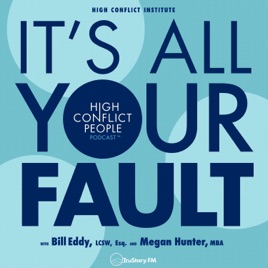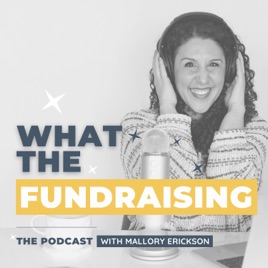
Advertise on podcast: It’s All Your Fault: High Conflict People
Description
Hosted by Bill Eddy, LCSW, Esq. and Megan Hunter, MBA, It’s All Your Fault! High Conflict People explores the five types of people who can ruin your life—people with high conflict personalities and how they weave themselves into our lives in romance, at work, next door, at school, places of worship, and just about everywhere, causing chaos, exhaustion, and dread for everyone else. They are the most difficult of difficult people — some would say they’re toxic. Without them, tv shows, movies, and the news would be boring, but who wants to live that way in your own life! Have you ever wanted to know what drives them to act this way? In the It’s All Your Fault podcast, we’ll take you behind the scenes to understand what’s happening in the brain and illuminates why we pick HCPs as life partners, why we hire them, and how we can handle interactions and relationships with them. We break down everything you ever wanted to know about people with the 5 high conflict personality types: narcissistic, borderline, histrionic, antisocial/sociopath, and paranoid. And we’ll give you tips on how to spot them and how to deal with them.
Podcast episodes
Check latest episodes from It’s All Your Fault: High Conflict People podcast
Podcast reviews
Read It’s All Your Fault: High Conflict People podcast reviews
Podcast sponsorship advertising
Start advertising on It’s All Your Fault: High Conflict People & sponsor relevant audience podcasts
You may also like these management Podcasts













